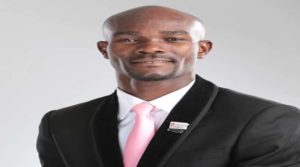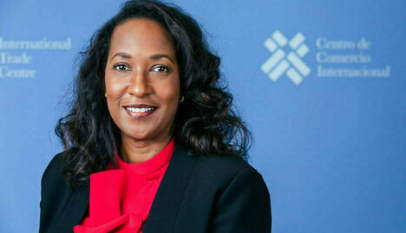Runcie Chidebe: “Having cancer in Africa is like a death sentence”
Thirty-one-year-old Runcie Chidebe is a youth activist and founder of Project PINK BLUE – a cancer nonprofit, engaged in reducing the incidence of cancer and phasing-out the late or advanced diagnosis of cancer in Nigeria. He speaks about his work creating awareness about cancer, providing free cancer screenings, and supporting people battling with cancer in poor, rural and hard-to-reach communities

What can you say inspired Project PINK BLUE, as a nonprofit working to reduce cancer by creating awareness about cancer and providing free cancer screenings in Nigeria?
I was one of those young Nigerians who always criticized political leaders for their failure in the area of governance but I later told myself I could do something to make a difference, instead of just lamenting the failure of leadership. I thought I needed to start something and it occurred to me that cancer was one disease that was not being given priority attention; in terms of both funding and awareness creation.
And that was how I started Project PINK BLUE while I was undergoing the mandatory National Youth Service Corps (NYSC) scheme at Abuja in 2013. So, I reached out to my friends and we started pulling our resources together and also reaching out to other people for partnership to implement programmes aimed at reducing cancer by creating awareness about it and providing free cancer screenings.
Nigeria’s Minister of Health recently said 50% of Nigerians dying abroad while in search of medical care, die of various types of cancer. How serious is the cancer challenge in Nigeria and Africa?
Cancer is really a terrible disease and what the minister said is true, the challenge is that most of those being diagnosed with cancer in Nigeria only get diagnosed with the disease while it is at its stage 3 and stage 4; at that level the cancer has already spread from one organ of the body to another.
For instance, if it is prostate cancer, it could have already spread to the lung or liver which makes it very difficult to treat as such what can only happen at that level is palliative care to manage it. This is the situation not only in Nigeria but across Africa. Although more people are diagnosed with cancer in Western countries than in sub Saharan Africa more people die of cancer in sub Saharan Africa. It is really pathetic!
Why is it that there are more people diagnosed with cancer in the West yet more people are dying of cancer in Africa than in the West? This has to do with our dilapidated medical infrastructure which means people don’t get diagnosed of cancer at its early stages. Most importantly, people don’t go for regular cancer screenings because screening in most cases only takes place when an NGO is offering it – free of charge!
In so many parts of Africa there are no comprehensive cancer treatment centers and that is why cancer appears to be a death sentence in Nigeria and across Africa; compared to other parts of the world.
How far have you gone in creating awareness about cancer and providing medical outreaches including free screenings for people in hard-to-reach communities in Nigeria?
We have been creating awareness on especially the most prevalent cancers which include breast, cervical, prostate and liver cancers. The prevalence of these cancers differs between the 2 genders. We have been using different platforms to create awareness on the importance of early detection, treatment as well as providing palliative care for the disease, including organizing awareness events.
For example, every year we organize an event to commemorate World Cancer Day, which we host in partnership with Transcorp Hilton. What we usually do is mobilize people from different places to come and have free breast, cervical and prostate cancer screenings as well as provide them with Information, Education and Communication (IEC) materials on cancer. Moreover, every October we host a big cancer walk in Lagos.
We have also organized community outreaches across Nigeria including in Niger and Anambra states. Last June, we provided free cancer treatment to 5000 Nigerian women and the programme was supported by the wife of the vice president of Nigeria, Dolapo Osinbajo.
Earlier in 2016, we trained 45 nurses from across Nigeria on improving their capacity to provide treatment to cancer patients, with the support of the US Embassy in Nigeria. Beyond that, we understand the need to engage with policymakers towards a better policy on cancer, thus we have been engaging with the legislature and Ministry of Health to ensure cancer is made a national health priority.
Project PINK BLUE, Premium Times Centre for Investigative Journalism (PTCIJ) and Partnership for Advocacy in Child and Family Health (PACFaH) recently hosted a National Health Dialogue in Abuja which looked at various issues around public health including cancer. What was the experience like?
Project PINK BLUE have been planning a cancer survivors’ conference to provide a platform for cancer survivors to share their stories when Premium Times said why don’t we all come together and use a singular platform to uplift not just the voice of cancer survivors but issues around healthcare in general.
The dialogue was highly impactful and it was interesting learning from other healthcare stakeholders from across Nigeria as well as engaging with policymakers including the Minister of Health who was there personally and the vice president who was represented at the event.














